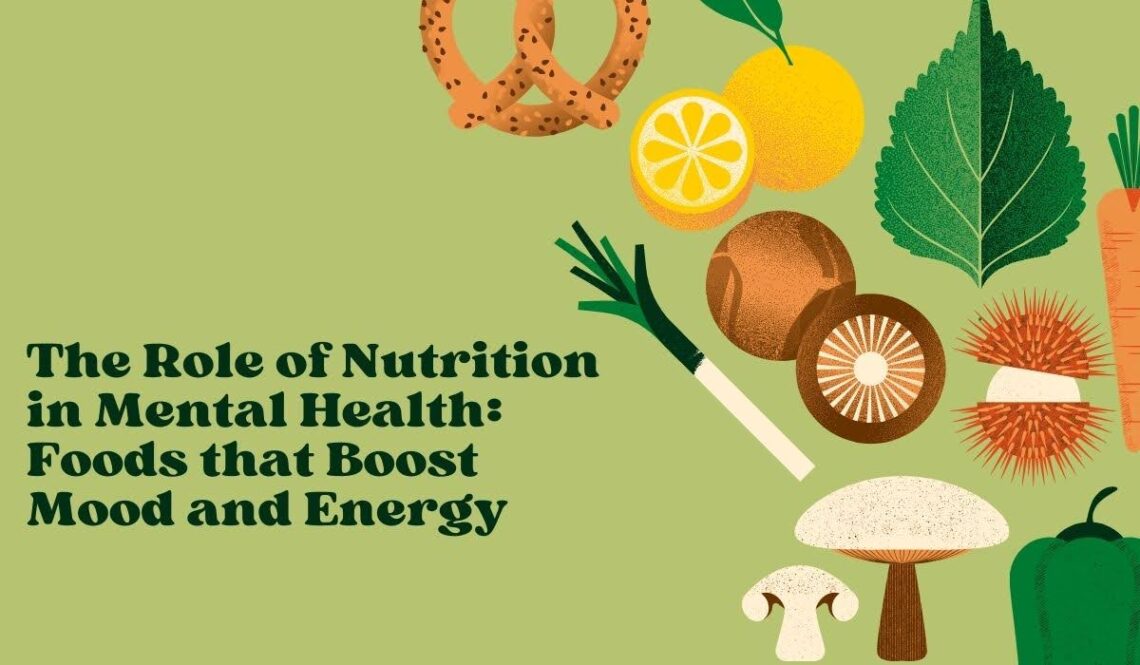
The Role of Nutrition in Mental Health: Foods that Boost Mood and Energy
It’s easy to overlook the profound connection between what we eat and how we feel. Yet, the food we consume plays a significant role in not just our physical health but also our mental well-being. Just as fuelling our bodies with nutritious foods keeps us physically fit, feeding our minds with the right nutrients can uplift our mood and enhance our energy levels. Let’s explore the essential foods that can boost our mental health and vitality.
Firstly, let’s talk about the power of omega-3 fatty acids. Found abundantly in fatty fish like salmon, mackerel, and sardines, as well as in walnuts and flaxseeds, omega-3s are crucial for brain health. Research suggests that these fatty acids contribute to the structure and function of brain cell membranes, promoting better communication between brain cells and reducing inflammation, which is linked to depression and anxiety.
Next up are the B vitamins, particularly B12 and folate. These vitamins play a vital role in synthesising neurotransmitters like serotonin and dopamine, which regulate mood and stress levels. Foods rich in B vitamins include leafy greens, eggs, dairy products, and lean meats. Incorporating these into your diet can support a stable and positive mood.
Furthermore, don’t underestimate the importance of complex carbohydrates. While simple carbohydrates like sugary snacks provide a quick energy boost followed by a crash, complex carbohydrates found in whole grains, fruits, and vegetables release energy slowly, providing a steady source of fuel for both body and brain. This sustained energy helps maintain focus and prevents mood swings.
Moreover, let’s not forget about the role of protein. Proteins are made up of amino acids, some of which are precursors to neurotransmitters. Including sources of lean protein such as poultry, tofu, beans, and lentils in your meals can help regulate mood and promote feelings of alertness and well-being.
In addition to specific nutrients, the overall quality of your diet matters. A diet rich in fruits, vegetables, whole grains, lean proteins, and healthy fats provides a broad spectrum of nutrients that support overall health, including mental well-being. On the other hand, diets high in processed foods, sugar, and unhealthy fats have been linked to increased risk of depression and anxiety.
Moreover, hydration is key. Even mild dehydration can affect mood and cognitive function. Aim to drink plenty of water throughout the day to stay hydrated and keep your mind sharp.
Lastly, while nutrition is essential, it’s not a standalone solution for mental health issues. It’s essential to seek professional help if you’re struggling with persistent feelings of sadness, anxiety, or other mental health concerns. A holistic approach that includes proper nutrition, regular exercise, adequate sleep, and social support is crucial for maintaining mental well-being.
What we eat has a profound impact on how we feel. By incorporating foods rich in omega-3 fatty acids, B vitamins, complex carbohydrates, and lean proteins into our diets, we can support our mental health and enhance our energy levels. Remember, nourishing your body also nourishes your mind, leading to a happier, healthier life.



